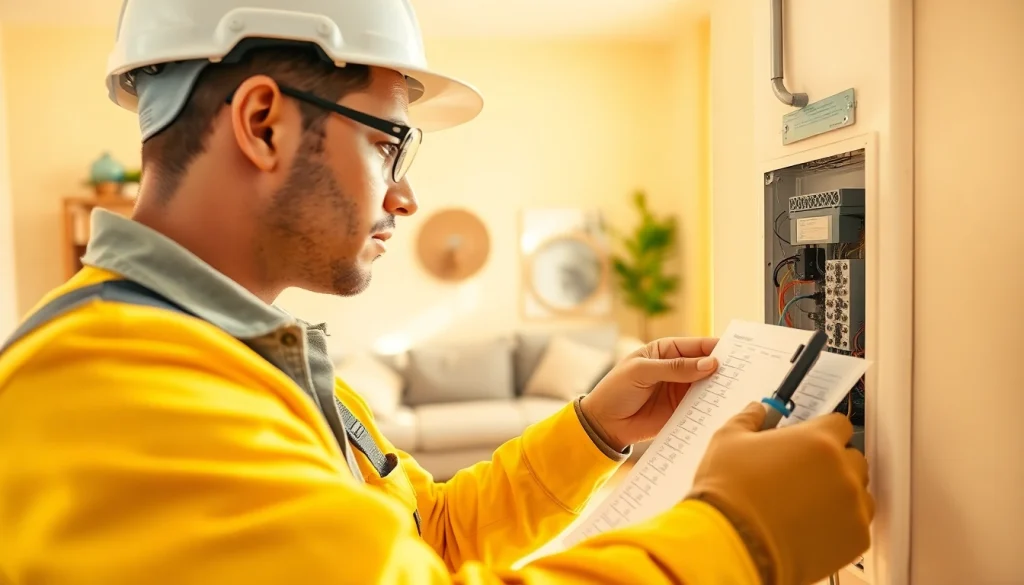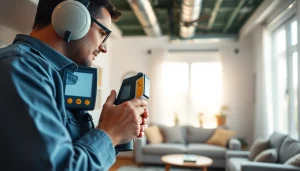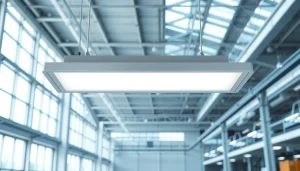Essential Insights for a Thorough Electrical Home Inspection

Understanding Electrical Home Inspection
What is Electrical Home Inspection?
An electrical home inspection is a comprehensive assessment of a home’s electrical system conducted by a qualified professional. The primary goal of this inspection is to identify any electrical issues or hazards that could pose risks to the occupants or property. The inspection covers various components of the electrical system, including wiring, outlets, circuit breakers, grounding systems, and more. By evaluating these elements, inspectors can provide homeowners with valuable insights into the safety and functionality of their electrical systems.
Importance of Electrical Home Inspection
Electrical home inspections are essential for several reasons:
- Safety: Faulty wiring or improperly installed electrical equipment can lead to electrical fires, shocks, or other hazards. Regular inspections help mitigate these risks.
- Insurance Requirements: Some insurance companies may require a current electrical inspection before policy approval or renewal.
- Real Estate Transactions: Homebuyers often request an inspection as part of the purchasing process to uncover potential issues before closing the deal.
- Energy Efficiency: An inspection can identify areas where energy consumption can be improved, leading to lower utilities costs.
Common Issues Identified in Inspections
During an electrical home inspection, numerous issues can arise, which might include:
- Outdated electrical systems that do not meet current safety codes.
- Improper grounding practices that can lead to shocks or fires.
- Overloaded circuits that may not handle the home’s electrical load safely.
- Damaged or frayed wiring that compromises both safety and performance.
- Inadequate or non-functional smoke and carbon monoxide detectors.
Preparing for Your Electrical Home Inspection
What to Expect from a Professional Inspection
When scheduling a professional electrical home inspection, you can expect a thorough assessment by an experienced electrician. The inspection typically involves:
- Visual inspections of main panels, subpanels, and breaker boxes.
- Testing outlets for proper voltage and grounding.
- Checking for the presence of GFCI and AFCI protection in relevant areas.
- Examining visible wiring for signs of damage, corrosion, or improper installation.
- Reviewing the condition and placement of all outlets, switches, and fixtures.
Homeowner Checklist for Inspection Preparation
Preparing your home for an electrical inspection can enhance efficiency and ensure a complete examination. Consider the following checklist:
- Clear access to all electrical panels.
- Ensure that your home is free of clutter in areas with wiring and outlets.
- Gather past electrical work documentation, including permits and prior inspection reports.
- List any electrical problems you’ve noticed, like flickering lights or tripped breakers.
Documentation to Provide for Inspectors
When the inspector arrives, having relevant documentation can facilitate a smoother inspection process. Essential documents may include:
- Previous inspection reports to provide context on any prior issues.
- Receipts or warranties for electrical upgrades or repairs.
- Home electrical plans or blueprints, if available.
Common Findings in Electrical Home Inspection
Outdated Wiring Concerns
One of the most frequent findings in electrical home inspections is outdated wiring. Many homes still employ older materials like knob-and-tube wiring, which do not meet modern safety standards. This can lead to frequent tripped breakers or even electrical fires. It’s imperative that homeowners are aware of the age and condition of their wiring, as replacing old systems with contemporary solutions can significantly enhance safety and efficiency.
Improper Grounding Practices
Grounding is a crucial component of any electrical system. Improper grounding can leave electrical systems vulnerable to surges and faults, potentially leading to severe accidents. An inspection will determine if the grounding is effective and compliant with current standards, recommending corrections where necessary to uphold safety measures.
Identifying Potential Fire Hazards
During an electrical home inspection, identifying fire hazards is a priority. Issues such as overloaded circuits, faulty wiring, or improper installation of switches and outlets can significantly increase fire risk. The inspector will evaluate these elements to ensure that the electrical system operates within safe parameters and adheres to local codes.
Improving Electrical Safety Post-Inspection
Recommended Electrical Upgrades
Based on the findings of the inspection, several upgrades may be recommended to improve electrical safety and efficiency:
- Rewiring outdated circuits to ensure proper load handling.
- Installing GFCI outlets in areas susceptible to dampness, like kitchens and bathrooms.
- Replacing aluminum wiring with copper for better conductivity and safety.
- Upgrading service panels to accommodate modern electrical loads.
Importance of Regular Maintenance
Regular maintenance of electrical systems is critical for long-term safety and performance. Homeowners should consider annual check-ups, ensure that all electrical work is performed by licensed professionals, and stay vigilant about unusual electrical behavior, addressing small issues before they escalate into major problems.
Setting Up Reliable Inspection Schedules
Establishing a reliable inspection schedule can help homeowners keep their electrical systems in check. It is advisable to have a comprehensive inspection every few years, especially in homes older than 20 years, or more frequently if the home has undergone significant renovations. Adhering to a regular inspection timetable supports safety and enhances property value.
Choosing the Right Professional for Electrical Home Inspection
Qualifications to Look For
When seeking a qualified professional for an electrical home inspection, consider the following qualifications:
- Licensing and certification: Ensure the inspector holds the appropriate licenses and certifications as required by local jurisdictions.
- Experience: Look for professionals with significant experience in electrical inspections and a track record of resolving common electrical issues.
- Insurance: The inspector should have liability insurance to protect you in case of accidental damage during the inspection.
Questions to Ask Before Hiring
Before hiring an electrical inspector, ask the following questions to gauge their expertise and fit:
- What does your inspection process involve?
- Can you provide references from past clients?
- What kind of reports do you provide post-inspection?
- How do you handle potential electrical issues discovered during the inspection?
Understanding Inspection Reports
After the inspection, a detailed report will be provided, outlining the condition of your electrical system, any issues found, and recommendations for repairs or upgrades. Familiarizing yourself with this report is crucial for understanding the safety and functionality of your system. Look for clarity in the findings, suggested timelines for repairs, and any required follow-ups.







